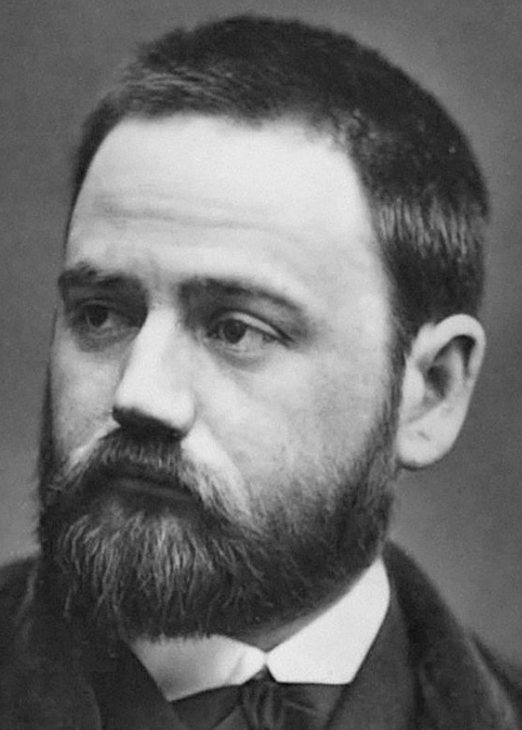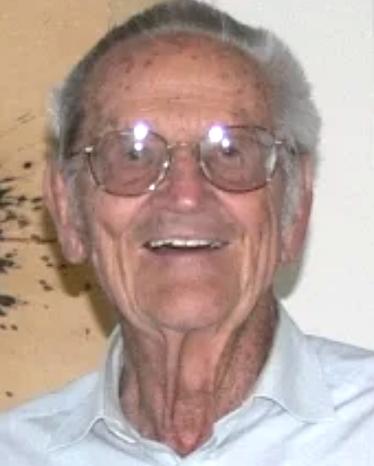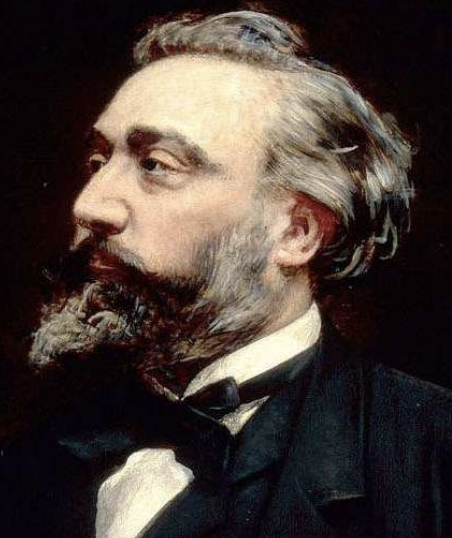April 2
Émile Zola

On this date in 1840, Émile Édouard Charles Antoine Zola was born in Paris. The novelist pioneered naturalistic writing, believing ugly problems could not be solved as long as they stayed hidden. As a struggling young writer, Zola supported himself as a clerk. Legend has it he sometimes resorted to trapping birds on his windowsill in order to eat. Zola also moonlighted as a political reporter and critic. He was fired from a publishing house after an early autobiographical novel created notoriety.
His breakthrough novel was Therese Raquin (1867). By the time his book L’Assammoir (“The Drunkard,” 1878) appeared, Zola was France’s most famous writer, yet he was barred his entire life from the Academy. His book Germinal (1885), about conditions in a coal mine leading to a strike, was denounced by the rightwing. Nana (1880) examined sexual exploitation.
Zola’s most enduring work is his open letter “J’Accuse,” about the Dreyfus case. He campaigned with Clemenceau to free the the French Jewish army officer falsely accused of spying. Zola was sentenced to imprisonment for writing “J’Accuse” in 1898, escaping to England until he could safely return after Dreyfus’ name had been cleared. Zola, who was baptized Catholic, was a notable critic of the Catholic Church (and vice versa). The church particularly condemned his books Lourdes, Rome, and Paris (1894-98). He was an honorary associate of the British Press Association. (D. 1902)
PHOTO: Zola, circa 1865.
“Given Émile Zola’s reputation as an agnostic and a radical thinker, he has often been avoided by scholars with a religious background.”
— Anthony Evenhuis, "Messiah Or Antichrist?: A Study of the Messianic Myth in the Work of Zola" (1998)
Lloyd Morain

On this date in 1917, Lloyd Morain was born in Pomona, Calif. He grew up in California and, after winning a scholarship essay contest, graduated from UCLA. During World War II he served in Britain with the U.S. Air Corps. Already active in the American Humanist Association, while in Britain he met with humanist groups with the goal of greater international humanist cooperation after the war. He continued this work, moving on to continental Europe, in the late 1940s.
In 1952 he and his wife, Mary Stone Dewing Morain, were among the founders of the International Humanist and Ethical Union. At the time, Morain was serving as president of the American Humanist Organization, a role he filled from 1951-55 and again from 1969-72. In the 1950s, Morain and his wife were also involved in supporting humanist organizations all over the world, including in traditionally religious regions of Africa. In 1954, they wrote the book Humanism as the Next Step: An Introduction for Liberal Protestants, Catholics, and Jews, which remains in print in a revised edition.
Morain served as the editor of Humanist Magazine from 1978-90. Though his early background was in psychological consulting, and he continued to work for the mining and utilities industries, he dedicated much of his life to humanist and social causes, including family planning and homelessness. He received several awards from AHA throughout his career: the Humanist Merit Award in 1956, the Humanist Distinguished Service Award in 1972 and the Humanist Heritage Award in 2007. In 1994 he and his wife won the Humanist of the Year Award jointly. (D. 2010)
“Back through the centuries whenever people have enjoyed keenly the sights and sounds and other sensations of the world about them, and enjoyed these for what they were — not because they stood for something else — they were experiencing life humanistically.”
— Morain, "Humanism as the Next Step" (1954)
Léon Gambetta

On this date in 1838, Léon Gambetta was born in Cahors, France. In 1857, he went to Paris to study law, and was called to the bar in 1859. He expressed very strong republican opinions (France was at that time governed by Napoleon III in the Second Empire) and in 1868 he became famous for his defense in a political case, called the Affaire Baudin. Baudin had died in an attempted coup, and Gambetta defended eight journalists who were prosecuted for attempting to build a memorial to him.
In 1869 Gambetta was elected to the Legislative Assembly, where he opposed the Franco-Prussian War, which broke out in July 1870. He was instrumental in forming a provisional government and declaring a republic after Napoleon III was captured by the Germans. Gambetta then helped to lead the defense of France from Germany. He briefly left government in March 1871 after ratification of a peace treaty which gave up Alsace and Lorraine. He was then elected to the National Assembly in July of that same year, where he was instrumental in the vote to institute the Third Republic, rather than to restore a Bourbon monarchy.
In addition to being a republican, Gambetta was part of the anti-clerical faction and an avowed atheist. He spoke of the conflict between “those who pretend to know everything through revelation, in an immutable manner, and those who march, thinking and progressing, to the suggestions of science, which every day accomplishes progress and which pushes back the boundaries of human knowledge.” (The End of the Soul: Scientific Modernity, Atheism, And Anthropology in France, 1876–1936 by Jennifer Michael Hecht, 2003)
Gambetta remained active in politics, becoming president of the Chamber of Deputies, until he died at age 44 of appendicitis. He wanted France to be a beacon for freethought as well as political freedom, and on his death made a contribution to freethought — his brain went to the Society of Mutual Autopsy, a group that wished to investigate the workings of the brain through dissection, attempting to show physical traits in connection with mental properties. (D. 1882)
“Clericalism, that’s the enemy!”
— Gambetta, quoted in "The End of the Soul" by Jennifer Michael Hecht (2003)
Jesse Plemons

On this date in 1988, actor Jesse Plemons was born in Dallas to Lisa (née Cason) and Jim Bob Plemons. His father was a firefighter and his mother trained individuals to teach special education students. He was raised in Mart, a small town near Waco, Texas.
“My parents sort of chose the town because of the [Baptist] church. I later realized my parents weren’t extremely religious, it was just what you do. It was kind of a given. … When I was older, I started to realize that there was a lot of it that didn’t make sense to me, but especially in those formative years, it felt like there was this looming figure that’s always watching you.” (Interview Magazine, Feb. 20, 2023) The pastor used to reassure the congregation he’d get them out in time to beat the Methodists to the Dairy Queen.
His success as a child actor led to the family, including older sister Jill, to live part-time in Los Angeles, where he garnered small roles in TV shows like “Judging Amy,” “CSI” and “Grey’s Anatomy.” At age 18 he joined the ensemble cast of NBC’s series “Friday Night Lights” being filmed in Austin, Texas. He appeared in 59 episodes over its five seasons and followed that with 13 episodes of “Breaking Bad” in 2012-13.
Plemons had a supporting role in “The Master” (2012), a drama partially inspired by Scientology founder L. Ron Hubbard. During a 10-episode role in season two of the black crime drama “Fargo” on FX, he co-starred with Kirsten Dunst as husband and wife. The onscreen relationship culminated in their actual marriage in 2022.
He and Dunst co-starred in Jane Campion’s “The Power of the Dog” (2021), a critically acclaimed and unsettling psychological drama that won Campion the Best Director Academy Award while garnering 12 Oscar nominations.
As of this writing in 2025, they have two sons: Ennis, 6, and James, 4. “I did have both my children baptized because I love the tradition,” Dunst says, adding that she’s a “practicing Christian” who believes in God. (E! News, April 4, 2024)
Plemons professes to be inspired by photography and music when he’s not working. “I feel like I’m on my own — this may sound strange — spiritual quest that doesn’t have anything to do with religion, that just has to do with different philosophies. I’m really excited by that and excited about enjoying my life and taking it easier on myself and being as present as I can be.” (Vanity Fair, Sept. 1, 2025)
In the seven-episode HBO Max miniseries “Love & Death” (2023), Plemons played the husband of Elizabeth Olsen in the true story of a woman who murdered her friend in Texas after having an affair with her friend’s husband. “…I grew up maybe an hour and a half south of where this story took place, so there’s something that I inherently understand, in terms of religious oppression and suppressing basic human desires and all the guilt and shame that a lot of these characters carry around.” (Ibid., Interview Magazine)
Numerous film and TV roles have led to him being typecast to play “quiet and unnerving” characters. A 2024 story in The Independent was headlined “How Jesse Plemons became Hollywood’s crown prince of dysfunctional masculinity.”
With Martin Scorsese’s “Killers of the Flower Moon” (2023), Plemons had appeared in seven Academy Award Best Picture nominees, joining a select group of actors including Marlon Brando, Katharine Hepburn and Laurence Olivier. He won the Best Actor award at the Cannes Film Festival in 2024 for his role in Yorgos Lanthimos’ “Kinds of Kindness,” which premiered at Cannes.
He played a supporting role in the Netflix political drama “Zero Day” in 2025, a leading role in the sci-fi comedy “Bugonia” and signed to play Plutarch Heavensbee in The Hunger Games prequel “Sunrise on the Reaping.”
PHOTO: Plemons at the Netflix premiere of “El Camino: A Breaking Bad Movie” in 2019 in Hollywood; photo by DFree/Shutterstock.
“There are plenty of people like that, [with] very good intentions [who] can do some really awful things. Like when you look at religion.”
— Plemons explaining his empathy for the unlikable protagonist of "Bugonia" (Vanity Fair, Sept. 1, 2025)
